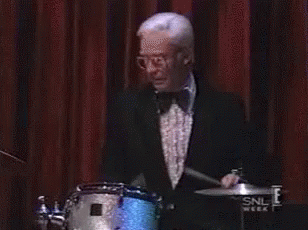ran a quick db search. here's what came up--
The Globe and Mail (Canada)
May 8, 1990 Tuesday
Dictatorial style was Crisp downfall as coach of Flames
BY AL STRACHAN
CHICAGO
Like the crumbling of the Berlin Wall and the democratization of Eastern
Europe, the firing of Terry Crisp as coach of the Calgary Flames was a
sign of the changing times.
Dictators are no longer in fashion, either in the National Hockey
League or in the real world, and Crisp's coaching style, unfortunately,
bordered on dictatorship.
In announcing Crisp's firing yesterday, general manager Cliff Fletcher
said in Calgary: "It is the feeling of our organization that to maximize
the potential of our hockey club . . . it necessitates a change of coach."
A minor surprise was that a replacement wasn't announced.
"I have a person in mind," said Fletcher, who has fired only two other
coaches in his 18 years as Flames general manager. "I'm not going to
speculate or play 20 questions on who may or may not be a candidate."
Crisp didn't attend the news conference and didn't return phone calls.
"No one is trying to hang Terry Crisp for the fact we lost to L.A. in
six games," Fletcher said. "It is a responsibility that has to be shared
by everyone in the organization."
Fletcher hinted Crisp's firing may be followed by player moves.
Away from the immediate trappings of the game, Crisp is a pleasant man.
He is effervescent, friendly and accessible. But when called upon to
exercise his responsibilities as a coach, he followed the tenets that he
had been exposed to as a player, and that he himself had used with great
success in junior hockey.
The NHL is not junior hockey. Today, many players come from Europe,
where the approach to the game is often less intense. Many come from U.S.
colleges and are academically oriented. Even Canadian juniors are much
better educated than their predecessors, with the majority graduating from
high school. Furthermore, junior hockey is played by teen-agers. NHL
hockey, for the most part, is played by men.
In the specific case of the Flames, many of the veterans had played a
large portion of their careers under Bob Johnson, a former coach at the
University of Wisconsin.
Johnson had a passion for meetings. He held them at all hours of the
day and night. Some were for the entire team, some for specific units and
some for individuals. Johnson made sure that everyone knew exactly what he
was doing. He explained to each player, calmly and patiently, what he
expected that player to do and why he expected him to do it.
Coaches like Crisp, whose response to adversity is to scream at the
players, are losing their popularity throughout the sport, but in Calgary,
where Johnson's influence was still strong, Crisp immediately faced a
solid barrier of resistance.
The first time he stood on the dasher to scream at a referee, the
players were horrified. "I wanted to push him onto the ice," one said. "
We're professionals. The day of that kind of activity is long gone."
Crisp's choice of vocabulary was something less than exemplary as well.
"Did you hear some of the things he was saying?" another player asked. "I
was embarrassed. There were families there, people I know, and you could
hear him cursing all over the building."
To his credit, Crisp did honestly try to change. He calmed down behind
the bench and this year, he tried to adopt a more modern approach to his
players. But the damage had been done. The players, rightly or wrongly,
had lost respect for him. They sardonically referred to him as "the
mastermind" because they felt that his coaching tactics were not up to
date.
Among other things, they felt that the Flames should work toward
emulating the swirling style used by the hated Edmonton Oilers. They felt
that their defencemen should be encouraged to jump in and join a rush
rather than be told to stay back. They felt that Crisp didn't always dress
the right players for a given situation.
Most importantly, they felt that they won the Stanley Cup last season
despite Crisp, not because of him.
There will be those who argue with this assesssment. Probably, the
vehemence of the disagreement will rise in direct proportion to the age of
those disagreeing. They will point to Crisp's Stanley Cup, and to his
coaching record that is second-best in league history, and say that he
deserves to be kept on.
But the best coaching percentage belongs to Scott Bowman, who was a
very strong influence on Crisp, and who is also out of work, having fallen
prey to the same syndrome that has affected Crisp.
Bowman still has a splendid hockey mind, but his approach, which he in
turn learned from another great coach, Toe Blake, is one of confrontation
and dictatorship.
Toe Blake's style wouldn't work today. The same is true of Dick Irvin
Sr. or Punch Imlach or any of the old-style disciplinarians. Times have
changed and whether the old hockey establishment likes it or not, it is a
fact that to be successful, today's players have to be urged and
encouraged more than threatened and abused.
Mike Keenan of the Chicago Blackhawks comes closest to the old-line
coaches (he too is a disciple of Bowman's), but Keenan has made
concessions to the era. He employs psychologists, professional motivators,
therapists, statistical analysts and anyone else who might be able to
bring his team's game into the nineties.
Terry Crisp's fatal flaw was that his game was still in the seventies.

